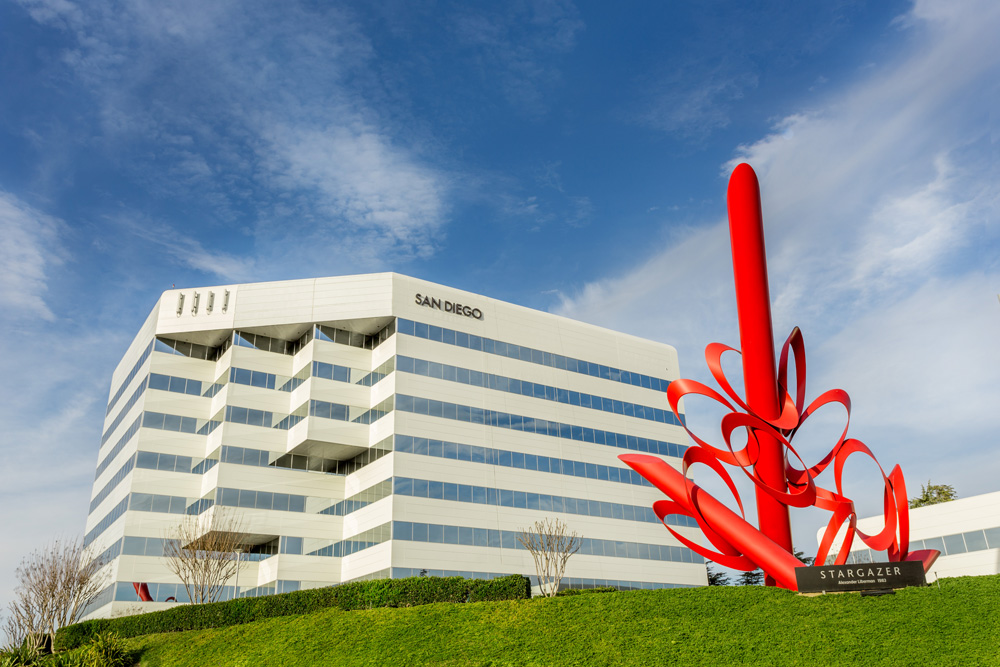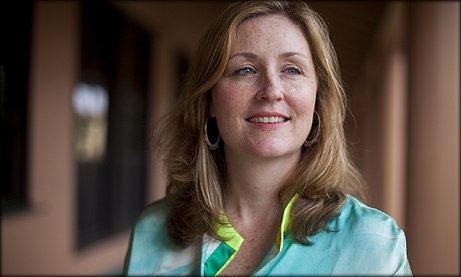Daily Business Report-Sept. 17, 2014
The San Diego Tech Center will undergo significant upgrades, according to its new owner, Locale Advisors.
Iconic San Diego Tech Center
Sold to Investment Company
The San Diego Tech Center — home to such big-name companies like Qualcomm, Sony, Novatell, Samsung and Karl Strauss Brewery — has been acquired by Lionstone Investments on behalf of Locale Advisors, a real estate investment company. Financial details were not disclosed.

The nine-building center at Scranton and Barnes Canyon roads in the Sorrento Mesa technology hub, totals 655,643 square feet and includes entitlements for up to an additional 1.2 million square feet of new development. Across the street is the corporate headquarters of Qualcomm, Sorrento Mesa’s largest tenant with more than 4.6 million square feet of office space in the area.
Lionstone’s operating partner for the acquisition is Locale Advisors. “This is a very exciting project for us as the San Diego Tech Center was way ahead of its time and has been the most visionary and successful technology campus in the county since its construction in the mid-1980s,” said Phil Monroe, principal with Locale Advisors. “San Diego Tech Center has an irreplaceable seven-acre park and lifestyle amenities create a unique employee experience.”
San Diego Tech Center includes an eight-story office building and eight one- and two-story R&D buildings. It is home to the popular Karl Strauss Brewery, as well as numerous indoor and outdoor amenities including a fitness facility, Pilates studio and locker room, lap pool, basketball and volleyball courts, all of which are set among a landscaped Japanese garden in the park.
The campus is 99 percent leased to investment grade companies including Sony Computer Entertainment America, Qualcomm, Novatel Wireless, Combined Conditional Access, and Samsung. The prior ownership invested $6.3 million in capital upgrades including LEED Gold certification, gym renovation, restaurant renovation, and landscaping and signage improvements.
Monroe said significant capital upgrades are planned throughout the existing property. Plans for future development haven’t been announced but will likely focus on attracting build-to-suits or phased development on other parcels over time.
“This is an exceptional economic asset perfectly positioned to serve the fast-growing and highly innovative technology industries,” said Jane Page, Lionstone Investments’ CEO.
Eastdil Secured and JLL represented both buyer and seller in the transaction.
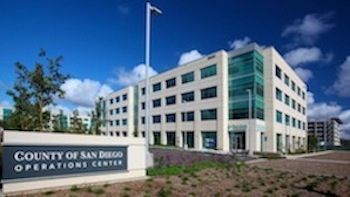
County to Set Aside $110 Million for Upgrades
To County Operations Center, Waterfront Park
The San Diego County Board of Supervisors on Tuesday authorized the expenditure of nearly $110 million in new construction, mostly for the next phase of the County Operations Center in Kearny Mesa.
When completed in three or four years, the 158,000-square-foot building will house an advanced crime lab for the sheriff’s department and a facility for the county’s vehicle fleet. Other offices included in the complex include the Registrar of Voters, public works and a library.
Supervisor Ron Roberts said the authorization for $106.8 million will allow for the start of design work.
The supervisors also approved spending $2.7 million on improvements to the new waterfront parkat the County Administration Center. Most of the money will be spent on a restroom.
The 12-acre park has been popular since it opened in May, drawing expansive and enthusiastic crowds. It includes an 830-foot long fountain that runs nearly the length of the park and has 31 jets that shoot water 14 feet into the air and into a shallow for kids to splash in; three themed gardens, two of which feature drought-tolerant plants; a large playground, and an expansive lawn that encompasses two former parking lots.
Parking for the county building was moved into a recently constructed underground garage.
The park is open from 6 a.m. to 10 p.m. daily, and spots can be reserved for weddings, company events and other parties. The county also has hosted outdoor concerts at the park.
— City News Service
Researchers Discover Link Between
Jacobsen Syndrome and Autism
A rare genetic disorder known as Jacobsen syndrome has been linked with autism, according to a recent joint investigation by researchers at San Diego State University and the University of California, San Diego. In addition to suggesting better treatment options for people with Jacobsen syndrome, the finding also offers more clues into the genetic underpinnings of autism.
Jacobsen syndrome affects approximately 1 in 100,000 people, according to the National Institutes of Health. It occurs in a person when there is a deletion at the end of one arm of the 11th chromosome, known as an 11q terminal deletion. The symptoms and physiological changes vary, but commonly include intellectual disability, abnormal facial development, structural kidney anomalies and congenital heart defects.
The idea for the recent study arose when UCSD cardiologist Paul Grossfeld, while looking into heart defects associated with the disease, became interested in the cognitive impairments that were so common in this disorder. He reached out to SDSU neuropsychologist Sarah Mattson, whose work primarily focuses on the effects of fetal alcohol exposure, and UCSD neuropsychologist Natacha Akshoomoff, an expert in autism.
The researchers quickly recognized a familiar suite of symptoms. “It became apparent that parents were reporting autism-like features,” Mattson said.
To test their theory, the researchers would need a controlled study and a larger sample size, and San Diego was the perfect location to do this.
Every two years, families with children who have Jacobsen syndrome come to San Diego from around the world for the 11q Conference to meet with one another and share the latest findings about the disorder.
“Because Jacobsen syndrome is a pretty rare disorder, the conference is extremely helpful for investigating research questions,” Mattson explained.
Smaller Target Store Headed for South Park

Indie die-hards in South Park are reeling from the news that mega-retailer Target plans to open a small-format store in the San Diego neighborhood next year, the U-T San Diego reports.
Target jumped on the small-store bandwagon this July when it opened its first TargetExpress in Minneapolis, and on Monday said it plans to open its sixth TargetExpress store in South Park next July.
The store will replace the Gala Foods supermarket at Fern and Grape streets, distressing proponents of the historic community’s local businesses. Gala Foods, which also owns the property, plans to close the grocery store around Nov. 1 and then lease the property to Target.
Some residents are outraged, but others, especially those critical of Gala’s tired look and limited offerings, are encouraging their neighbors to withhold negative judgment.
UC Regents Plan UC Ventures Fund
A multi-million dollar venture capital fund to support campus startups may be coming to University of California schools. Titled “UC Ventures,” the fund would initially be financed by the University of California with a possibility of seeking outside investors in the future.
UC Ventures would foster innovation, research and entrepreneurship for the UC ecosystem, which already has 324 companies with $1 billion in royalty and income revenue born out of the system.
The UC Board of Regents will hear the proposal for the venture fund today.
QPID Health to Open Carlsbad Office
Boston-based QPID Health, a developer of clinical intelligence software, announced the October opening of its first West Coast office in Carlsbad. The office will be located at 1000 Aviara Parkway.
The QPID software platform enables health care providers to get the most from their investment in electronic health records by delivering relevant patient information where and when it is needed.
QPID Health formally launched in late 2012. it raised $12.3 million in venture funding earlier this year.
City Sidewalk Hazards Cited
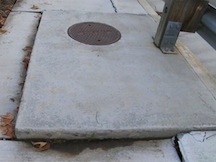
More than 39,000 tripping hazards have been discovered in a condition assessment of San Diego sidewalks that’s about halfway finished, according to a report scheduled to be presented today to the City Council’s Infrastructure Committee. City employees and college engineering students have been tramping along the sidewalks since January, noting and photographing problems from cracks to uplifts to corner curb ramps that don’t meet requirements under the Americans With Disabilities Act.
So far, about 3,100 miles of sidewalks have been catalogued, which officials believe is around the halfway point, according to the report. Most of the work so far has been conducted in San Diego’s older neighborhoods.
The data collection of San Diego’s sidewalks — along with similar assessments of the condition of the city’s parks, buildings and other structures — is designed to give Mayor Kevin Faulconer and the City Council an accurate picture of infrastructure needs. Estimates of the city’s backlog of capital project and maintenance needs range up toward $2 billion, but city officials aren’t sure of an exact amount.
Among other things, the sidewalk assessment is taking note of curb heights, trees and tree wells, and tripping hazards, where the difference between segments of a sidewalk differ by at least a half-inch.
About 3,700 of the tripping hazards are the result of tree roots, according to the report. More than 14,000 curb ramps aren’t ADA compliant.
— City News Service
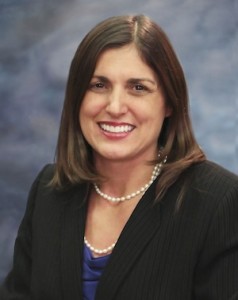
College District Selects Interim Vice Chancellor
Shelly Hess has been appointed interim vice chancellor of instructional services for the San Diego Community College District, effective Sept. 22. Hess will oversee coordination and alignment of the curriculum, including compliance with Title 5 and policy and procedure development related to instruction. She is currently dean of curriculum and instructional services for the district.
Hess is a product of the California community colleges, having completed general education requirements at Southwestern College. She has a bachelor’s degree from UC Riverside, a master’s degree from San Diego State University and an Ed.D. in educational studies from the University of Nebraska.
W2O Group Opens San Diego Office
W2O Group, a network of complementary marketing and communications firms based in San Francisco, has opened a San Diego office to build its health and technology businesses. The company has hired David Walsey, managing director of Brewlife, a W2O Group company, to run and grow the office, particularly in the areas of biotechnology, life sciences, medical device, health care delivery, digital health, and consumer and B2B technology.
Walsey joins W2O Group from Optimer Pharmaceuticals where he served as vice president of corporate communications and investor relations.
Council Gives Final Approval to
Ordinance Regulating E-Cigarettes
The San Diego City Council granted final approval Tuesday to an ordinance that will regulate vapor inhalers — also known as e-cigarettes — in the same manner as tobacco products.
“Something we heard from businesses, they actually wanted some amount of certainty in how the city approaches e-cigarettes, because it’s a new industry,” said Councilman Mark Kersey, who guided the ordinance through the council. “From their perspective, if you’re a restaurant owner, if you’re some kind of a business owner, you don’t know how you’re supposed to treat these things.”
The ordinance will require store owners who sell e-cigarettes to obtain a police permit, and prohibit sales of the devices, vaping juice and other paraphernalia through vending machines.
The use of vapor inhalers will be prohibited in the same types of places where people aren’t allowed to smoke cigarettes — such as restaurants, theaters, sports facilities, parks and beaches. Use of the devices will be allowed in vehicles, e-cigarette shops, vaping lounges, and private residences — except for those licensed as daycare centers that have minors present.
Mayor Kevin Faulconer will have 10 days to sign the ordinance. If he signs it, it will go into effect 30 days after Tuesday.
— City News Service

